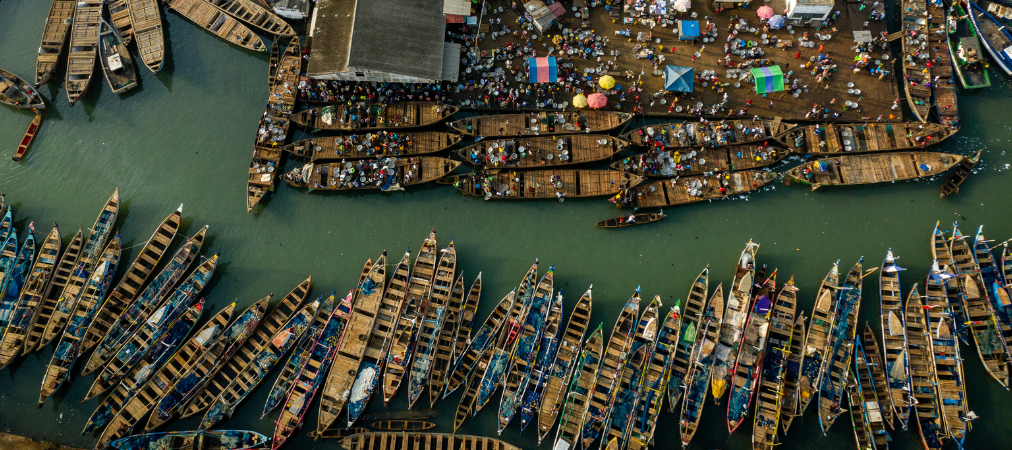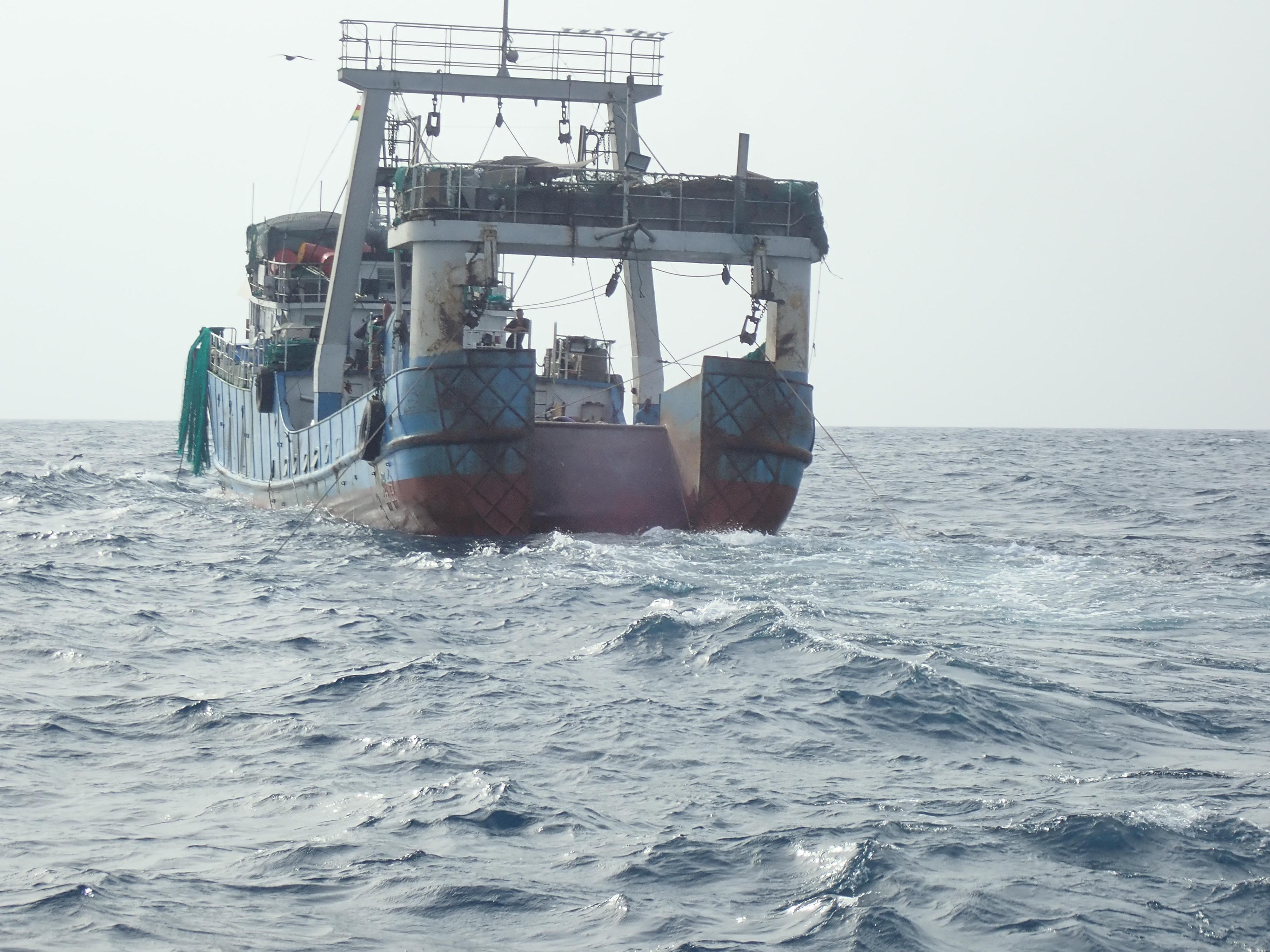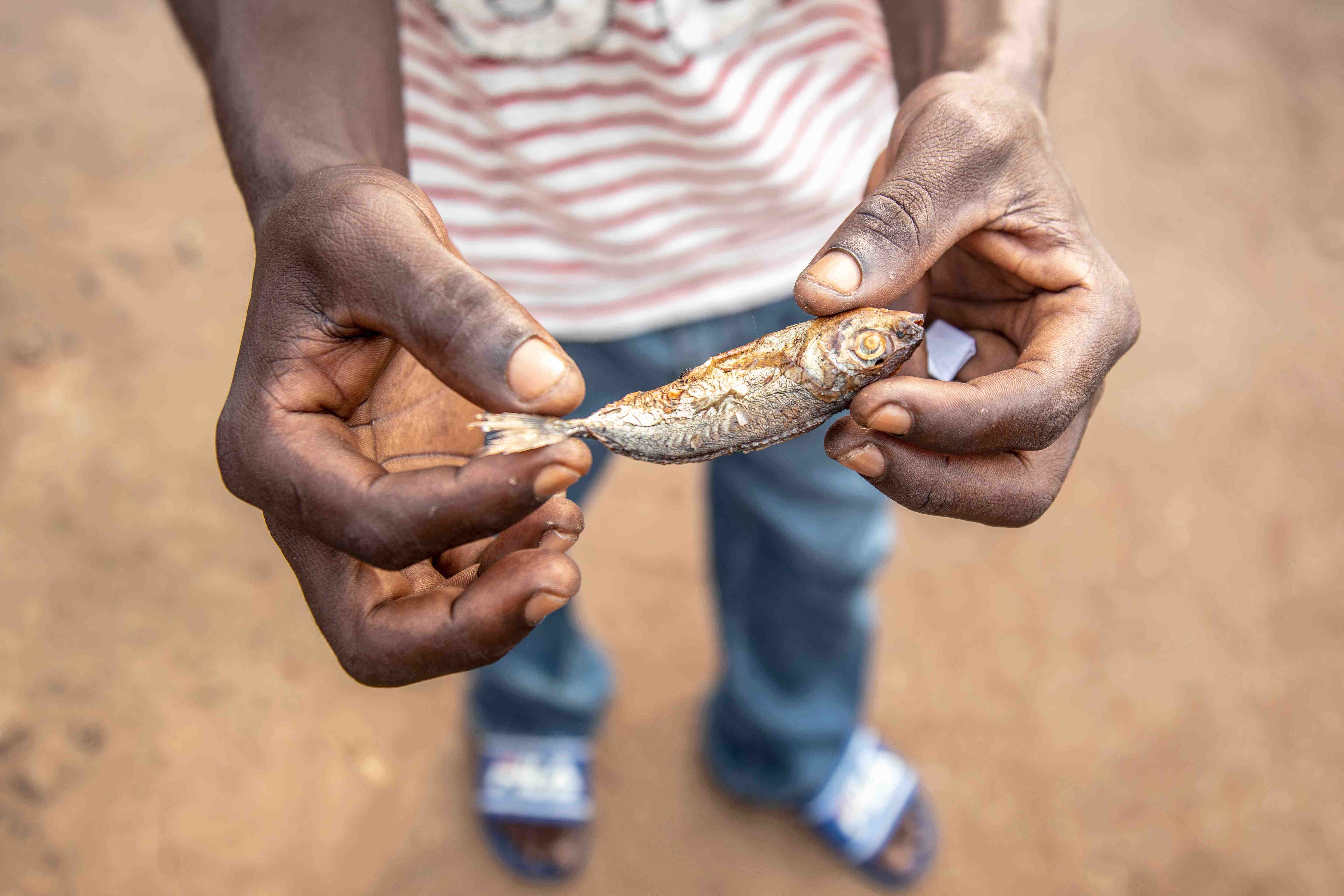The ancient port town of Elmina in Ghana’s Central Region is dominated by a Portuguese-built 15th century castle. Black kites hang in the thermals above the fish market, which is confined on its northern edge by a deep channel that cuts up to a brackish lagoon fed by the Benya river.
Doing my best to look like a tourist, I move awkwardly through the market, shooting short clips and snapping pictures with a DSLR. A hidden camera captures the scene from a button on my shirt. Fishmongers weave through the crowds with large aluminium bowls packed with fish balanced on their heads, shushing me aside as I make my way to the quayside.
Food and income
Ghana is reliant on the fishing industry. It brings over US$1 billion into the country every year and employs over 2.5 million people.
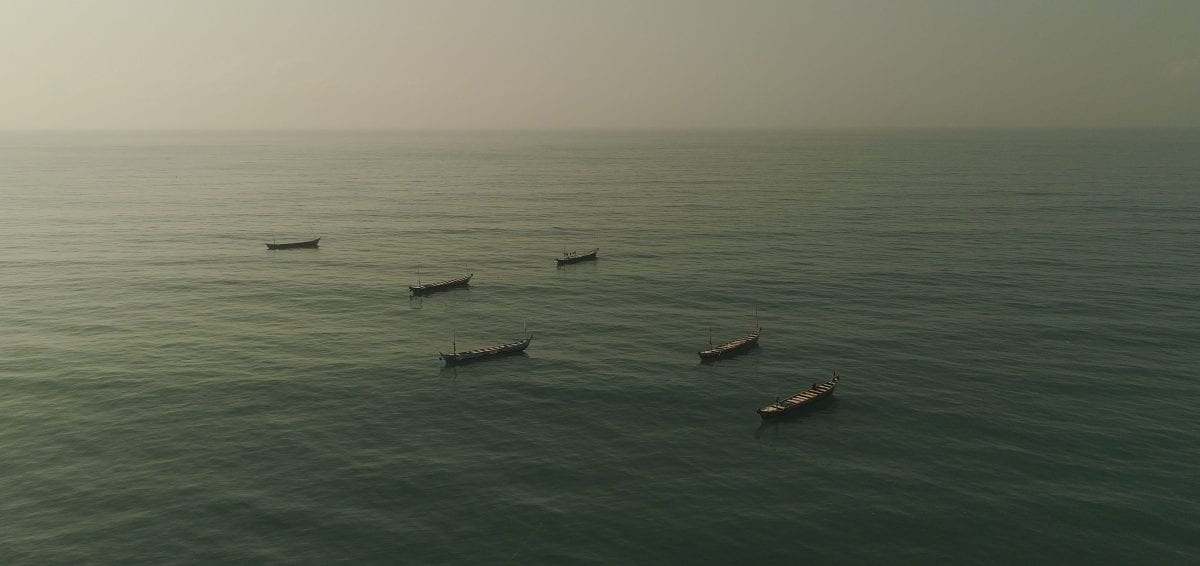
At the quayside, fish are passed along chains of workers from the holds of the canoes that pack the channel. Steam rises from the bellies of the wide ocean-going canoes, where thousands of blocks of frozen fish are beginning to thaw in the morning light.
These canoes do not have the equipment on board to freeze fish at sea; only industrial vessels have that capacity. They do not even have fishing nets on board. As I lift my camera to capture the scene, a man quickly bats it down. He asks who I am and what I am doing there. “Delete all the pictures,” he instructs.
As I lift my camera to capture the scene, a man quickly bats it down. [...] "Delete all the pictures," he instructs.
Tim Young, EJF Campaigner
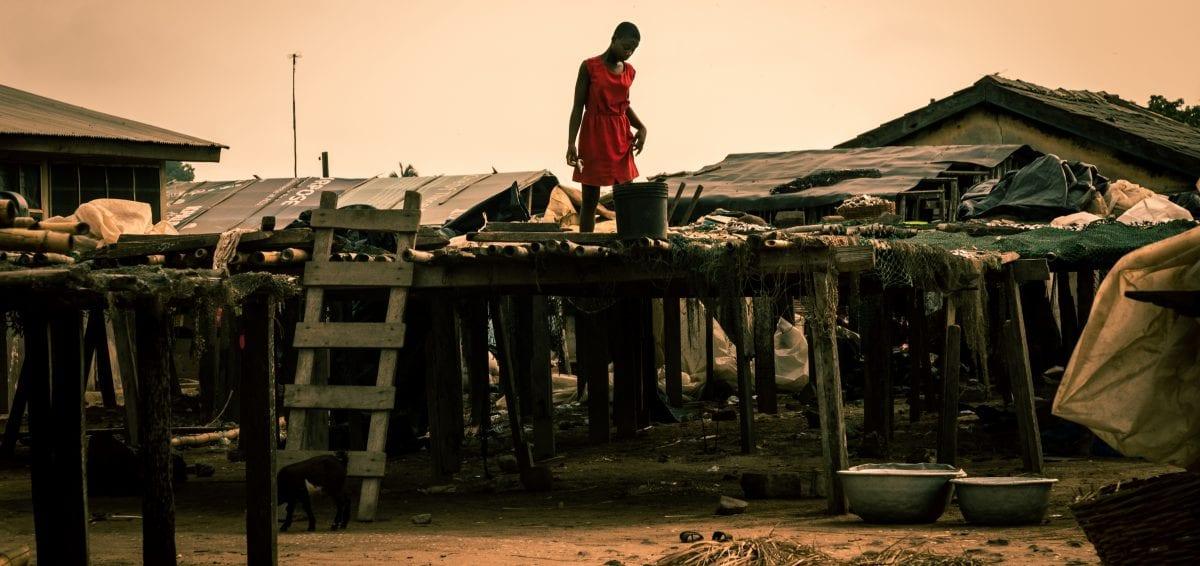
What’s happening in Elmina – and in port towns up and down the Ghanaian coast – is known as ‘saiko’. It began as an informal system of trading between the industrial trawlers that are licensed to fish in Ghana’s waters, and the local canoes that target small open water fish, such as anchovies and sardinella.
The trawlers would sometimes catch these smaller species unintentionally while targeting the high-value, export-oriented seafood they were licensed to fish. So they would freeze this ‘by- catch’ and trade it with local canoe fishers for supplies: fresh water, fruit, even livestock.
An open secret
‘Saiko’ is the word used by fishers to describe the illegal transfer of fish between boats.
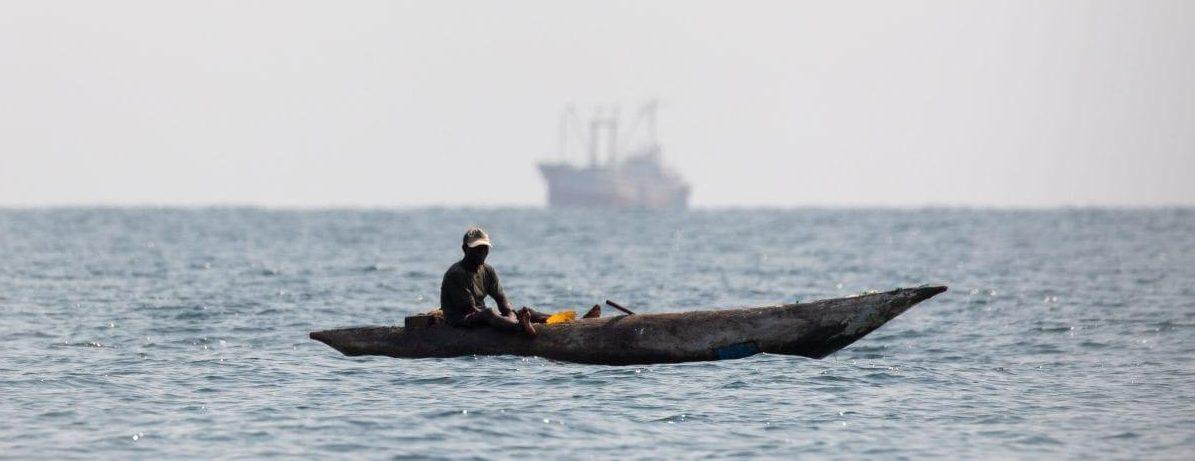
As the commercial species dwindled from overfishing, trawlers began to intentionally target the smaller fish on which local canoe fishers had traditionally depended and sell it back to fishing communities for profit. Eventually, as small fish populations were decimated, some of the local fishers stopped bringing nets to sea at all, and would simply meet with the trawlers, fill their canoes with frozen fish, and return to port.
In time, unscrupulous businessmen began to muscle in, investing in specially-adapted canoes capable of carrying tens of thousands of kilos of fish per trip. The illegal trade boomed. ‘Saiko’ is the word used by fishers to describe this illegal transfer of fish between boats (known as trans-shipment at sea).
It’s an industry that’s worth over US$50 million annually, and it’s pushing Ghana’s marine ecosystems to the brink of total collapse. According to recent assessments, Ghana’s small pelagic fishery could collapse within five years unless urgent and drastic interventions are made. As it stands, the country is now forced to import well over half of the fish consumed.
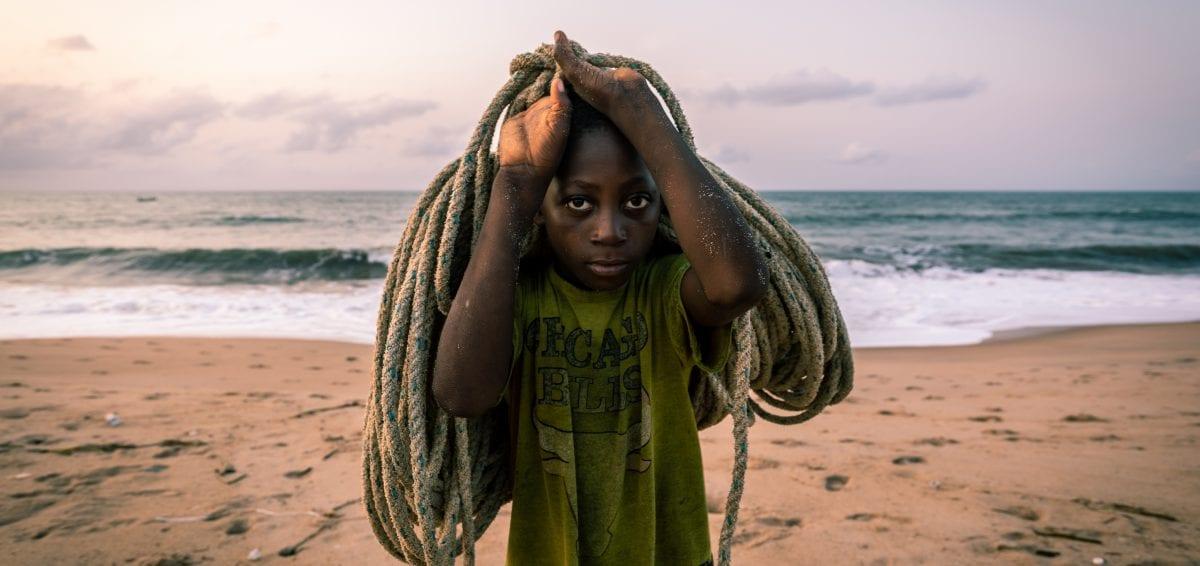
I am worried about my children. There won't be any fish left in the sea during their lifetime.
Kweku, fisherman in Ankaful
Speaking to Ekuwa, a fishmonger in the town of Ankaful to the north of Elmina, it’s clear what a catastrophe saiko has been. "There was a lot of fish when I became a fishmonger. Then saiko came and the canoes stopped catching all kinds of fish. Saiko has destroyed our ocean. The trawlers catch all the fish meant for our husbands and use it for saiko." Ekuwa’s husband Kweku, a fisherman himself, is just as concerned. "I am worried about my children. There won’t be any fish left in the sea during their lifetime."
For Ekuwa and the many thousands of women like her along Ghana’s 540km coastline, fish is their livelihood. And for the many millions more who buy fresh and processed fish in Ghana, it’s a key source of animal protein vital for health and food security.
There was a lot of fish when I became a fishmonger. Then saiko came and the canoes stopped catching all kinds of fish. Saiko has destroyed our ocean.
Ekuwa, fishmonger in Ankaful
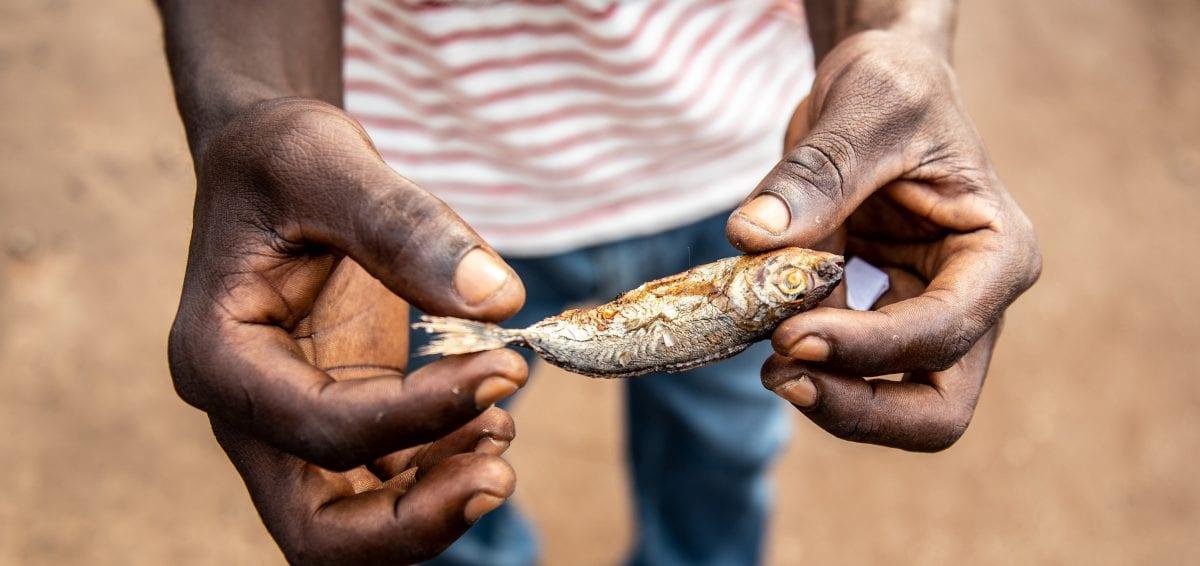
For the industrial fleet, it’s a race to the bottom. Illegal fishing is systemic, and sanctions are rare, in spite of a recently improved and fairly rigid legal framework. There is an open secret in Ghana’s industrial fishing industry that undermines any kind of regulatory deterrent; around 90% of trawlers are operated by Chinese companies, despite foreign ownership of vessels being banned. Most are ‘owned’ by Ghanaian front companies, but the profits from their illegal fishing activities flow out of the country.
This system of hidden beneficial ownership makes it almost impossible to sanction the true beneficiaries of illegal fishing...
Building a more sustainable fishing sector
The Environmental Justice Foundation (EJF) works across West Africa and around the world, to document illegal fishing and empower fishing communities to protect the resources that they depend upon for food and income.
To date, the information gathered by EJF teams and the local communities we work with, has led to scores of official investigations, the delisting of illegal vessels, criminal charges being brought against operators, and millions of dollars of fines levied against ship owners. In Ghana, EJF’s local staff and extensive network of community mobilisers, work to strengthen fisheries monitoring at a grassroots and political level.
This photo essay was originally published in Issue 14 of Oceanographic Magazine and is reposted with permission.
SIGN UP FOR OUR EMAILS AND STAY UP TO DATE WITH EJF
